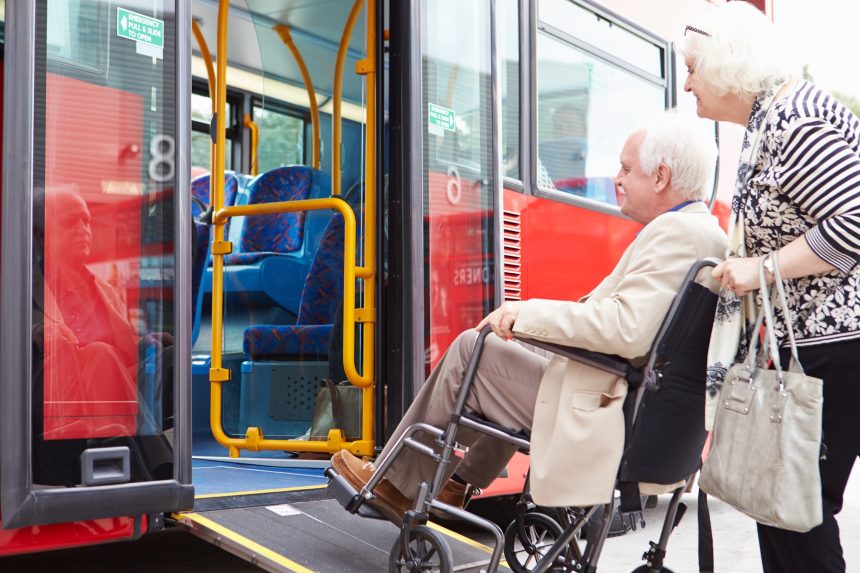The bus industry and its key governmental stakeholders must continue to improve things for disabled passengers, Bus Users UK has outlined in a report published on 20 August, Why Are We Waiting: Disabled people’s experiences of travelling by bus.
It acknowledges that much has already been done to uplift accessibility of bus services and that buses “are a lifeline to independence” for many disabled people. However, the charity adds in the report that services “are far from fully accessible” and it wants bus operators, local authorities and the government to each do their bit to solve that.
Such measures include training, wider policies, and engagement and collaboration between operators and communities and people with disabilities. Among the asks of local authorities are effective priority measures, better bus stop and bus station infrastructure, and a zero-tolerance to the blocking of access to buses such as via poor parking or pavement clutter.
Of the government, Bus Users UK wants increased minimum legal requirements – including around the accessible information regulations – and greater clarity about matters such as access to the wheelchair user area.
The charity has also added its voice to the call on governments to provide “long-term, ring-fenced funding” to improve bus services. It additionally wants a legal obligation to be placed upon local authorities to provide socially necessary transport services.
The report has been compiled via the gaining of an in-depth understanding of the experiences of 32 bus passengers with visible and/or non-visible disabilities in England, Scotland and Wales.
Beyond overarching improvements to information provision, policy, training, and off-bus infrastructure, the document seeks changes to vehicle design. The research found that wheelchair user bays often face away from information displays, “and there can be competition between passengers for [that] space.”
Publication of the report comes in the run-up to Catch the Bus Month in September. That celebration will focus on accessibility. The research work by Bus Users UK was funded by the Motability Foundation through a grant.
Speaking about the report, Bus Users UK Chief Executive Claire Walters says: “At some point in our lives, we are all likely to need more accessible transport and buses can provide that, offering independence and enabling people to lead active and fulfilling lives.
“However, despite many recent advances in legislation, staff training and vehicle design, buses are still far from accessible. This research highlights, in their own words, the many challenges facing disabled passengers.”
Ms Walters adds that the work will make “a vital contribution to understanding barriers to travel, and demonstrates the importance of working with disabled passenger to overcome them.” Sustained commitment, collaboration and funding is now needed to ensure that bus travel is a reliable, accessible and environmentally friendly option “for everyone,” she says.
Confederation of Passenger Transport (CPT) CEO Graham Vidler comments that the trade body and its members welcome the Bus Users UK report and the lived experiences of disabled people that it presents.
Mr Vidler adds that CPT and bus operators “recognise the importance of accessible bus service provision across the UK, not least for passengers reliant on buses for the primary or only means of independent travel.”
He continues: “CPT is working hard to help all its members to become fully compliant with the accessible information regulations when these take effect this autumn. It is also working closely with relevant partners to develop better driver training materials more widely, to help improve the experience of all disabled passengers.”
Report available here.




























